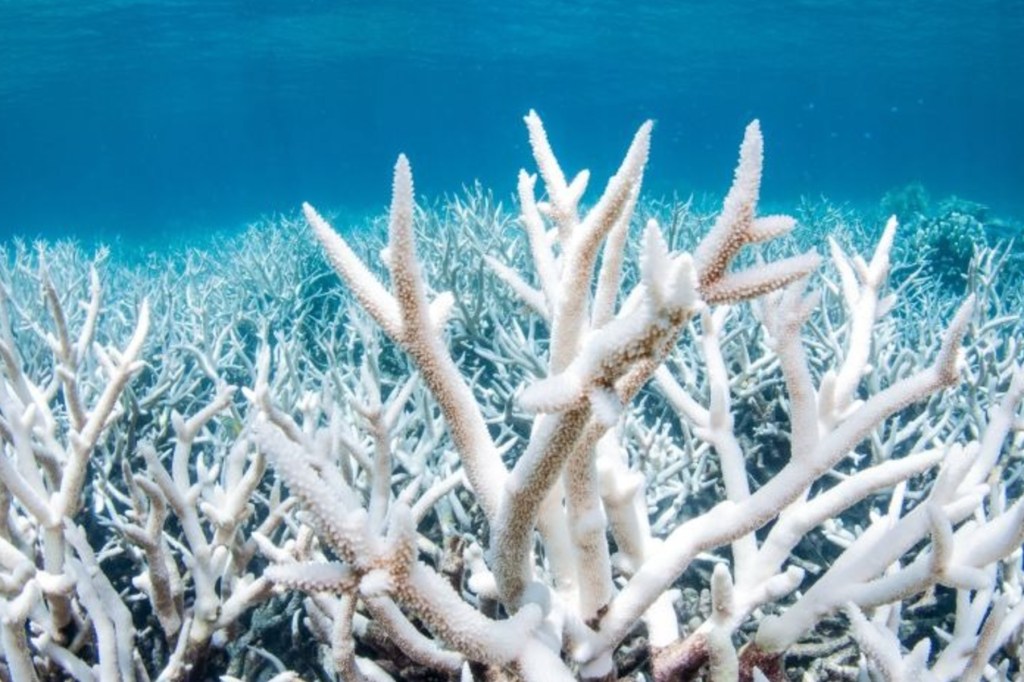‘Summer from hell’ sparks coral bleaching fears
Experts are bracing for the impact of another hot summer on the Great Barrier Reef after it suffered its worst coral bleaching of 2024.

A “summer from hell” awaits the Great Barrier Reef, sparking fears of more coral bleaching devastation.
Experts are on high alert after the World Heritage-listed area suffered its most widespread and severe coral bleaching event of 2024.
The reef has endured seven bleaching events since 2016.
Surveys show a 41 per cent loss of coral cover in the reef’s southern Capricorn Bunker region, marking the largest annual decline for the sector.
You might like
It comes after 72 per cent losses of coral were recorded in northern areas in November, spanning 19 reef sectors between Lizard Island and Cardwell.
“These are unprecedented losses of coral cover,” the Australian Marine Conservation Society’s Simon Miller told AAP.
“It’s a world away from the thriving coral reef that we have seen in the past and what everyone wants to see into the future.”
Water temperatures are already 0.5C-1C above average, indicating a bleak outlook for the reef over the summer.
Stay informed, daily
The reef’s northern region was already on notice, Miller said.
“It’s looking like it could be another summer from hell, unfortunately,” he said.
“The US National Oceanic and Atmospheric Association have just upgraded the forecast to put the northern Great Barrier Reef on Coral bleaching warning.
“After the devastation that we’ve had following the bleaching event this summer, everyone’s on high alert for that.”
Governments must take substantial action on climate change and fossil fuel developments to give the reef a fighting chance, Miller said.
He also called for a coral-bleaching emergency response plan.
“We really need to see both the Australian and Queensland governments treating these major events with the urgency that they deserve so that we can increase the resilience of these reefs,” Miller said.
“That means taking immediate responses and tangible actions like stopping the harvest of wild corals or really focusing efforts to remove crown of thorn starfish, because these reefs are under significant pressure.
“We need to do everything we can if we want to safeguard what is one of the world’s most treasured ecosystems.”




